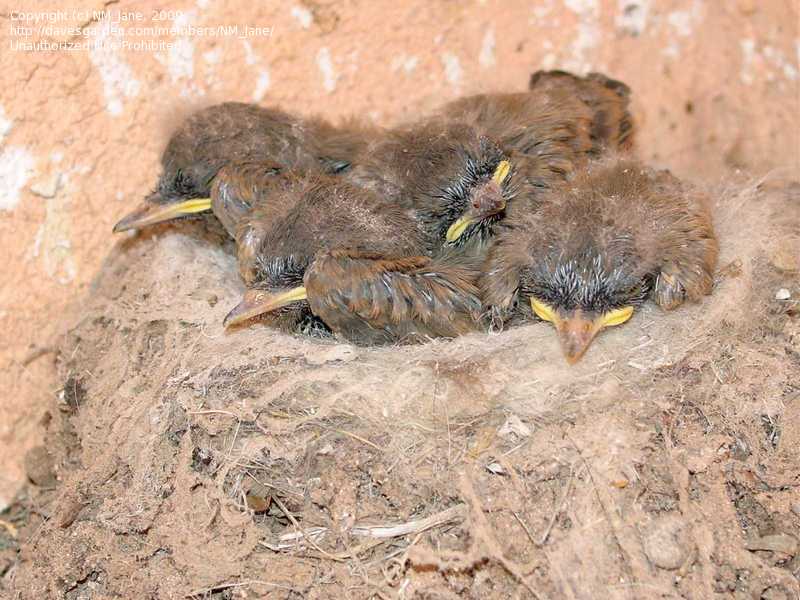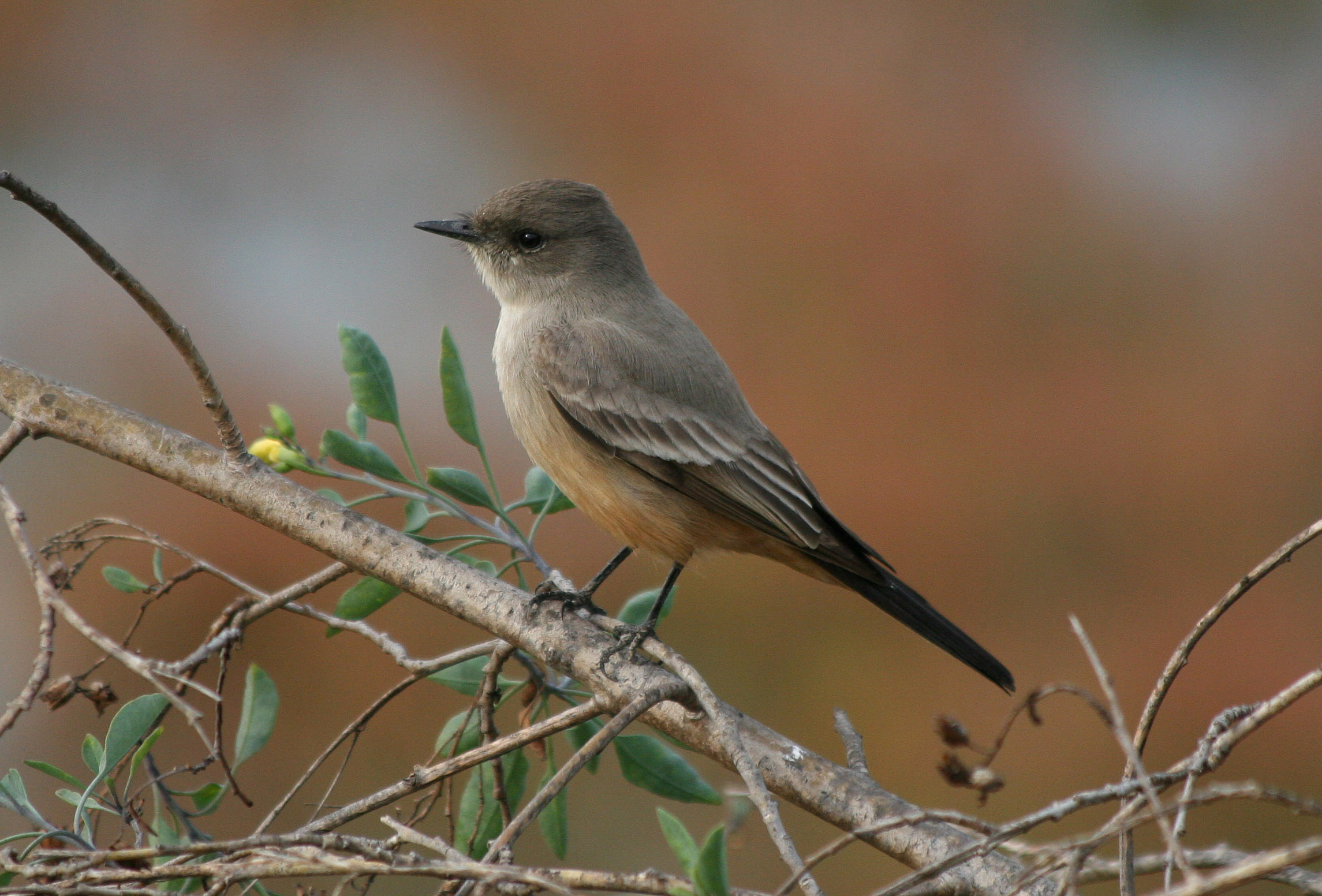

THE PHEBE-BIRDS.
ONE bright day in the spring of 1867, two demure looking little birds, clad in Quaker dress, found their way to a rambling old house just out of the village.
The house stood back from the street quite a way, and across part of the front was a long low porch.
Over the windows ran climbing rosebushes, but they were not yet in blossom; in front of the house stood two spreading balm-of-Gilead trees; and just one side was the flower-garden, with its bunches of columbine and beds of pinks, which by-and-by would make the garden gay.
The birds hopped about very quietly at first, peeping into this corner and that of the porch, as if afraid of some danger. It was so still that perhaps they began to think that no one lived there, so pretty soon they flew around more boldly, chirping cheerily to each other. They seemed to be looking for a place to make themselves a home, and after a while they appeared to decide upon a snug corner of the porch. So they went to work in good earnest to build their nest, flying back and forth with sticks, straws, and bits of wool, and feathers, and seeming to take no notice of two little barefooted girls who stood just inside the open door, eagerly watching the little builders and scarcely daring to stir for fear of driving them away.
Only a few weeks before, the mother had been carried out to sleep under the cold winter snows, and the two little girls were left alone with their father. For a while an aunt had staid with them, but when the spring came, she had gone to her home; and now day after day the children staid alone in the old house, while the father was away to his business. They played "house-keeping" in earnest, and then ran and played under the old balm-of-Gileads with their kittens and dolls; but sometimes in the afternoon they grew tired and very lonely, and creeping into the silent house, would sit on the floor and talk of the dead mother and cry themselves to sleep; and the father, coming at nightfall, would find them thus. But this afternoon they spied the birdies, and were so happy in watching them that they forgot to be lonely; and some way the time did not seem nearly so long as usual till they saw their father coming up the path. Then away they ran to meet him, each anxious to tell first, of the visitors who had come that afternoon, and to show him where they had begun to build their nest.
In the morning the children were up early to see their birds, and were so afraid that they would not come back again.
But they came, and staid; and after a few days the nest was done.
And now the little girls were not so lonely, for they had the birds to watch, and then father sometimes staid with them all day; and once he lifted them up where they could see the five speckled eggs in the nest. And when the little ones were hatched, the children never tired of watching the old birds, as they flew back and forth, bringing worms and bugs for the eager, gaping mouths which stretched over the edge of the nest.
Sometimes one of the birds would be gone longer than usual, and the other would stand on the rain-board and cry, "Phe-be, Phe-be"; and the children always thought it was the father bird who called the mother to come and look after the little ones. The birds grew very tame, and seemed not in the least afraid of the children.
When it rained, the porch leaked; so their father would hold the dust-pan above the nest, that the birds might not get wet. They seemed really to appreciate this kindness, and did not act at all afraid.
Finally the little birds grew so large that the nest would no longer hold them, and one morning one of them fell out; but the cats were only kittens, and did not harm it. The old birds, however, had begun to think it was about time the young ones learned to take care of themselves, so that day they taught them to fly. The little girls cried bitterly because their birds were going away; but they did not leave entirely for several weeks.
They staid near, and would often fly into the house to get the crumbs scattered for them; and they seemed as glad to see the children, as the children were to see them.
If strangers came to the house, the birds were afraid, and would go away.
One day a man came there, and one of the birds perched itself upon his hat, as it lay on the table. He did not see it, and snatching the hat up suddenly, so frightened the bird that it flew away; and none of them ever came back again. The little girls missed them very much, and often wondered if they would come again the next year to build their nest in the porch; but that autumn the family left the old house never to return, and before another spring it was burned; so the "phebes," as the children called them, found their home gone, if they ever did come again.
E. B.